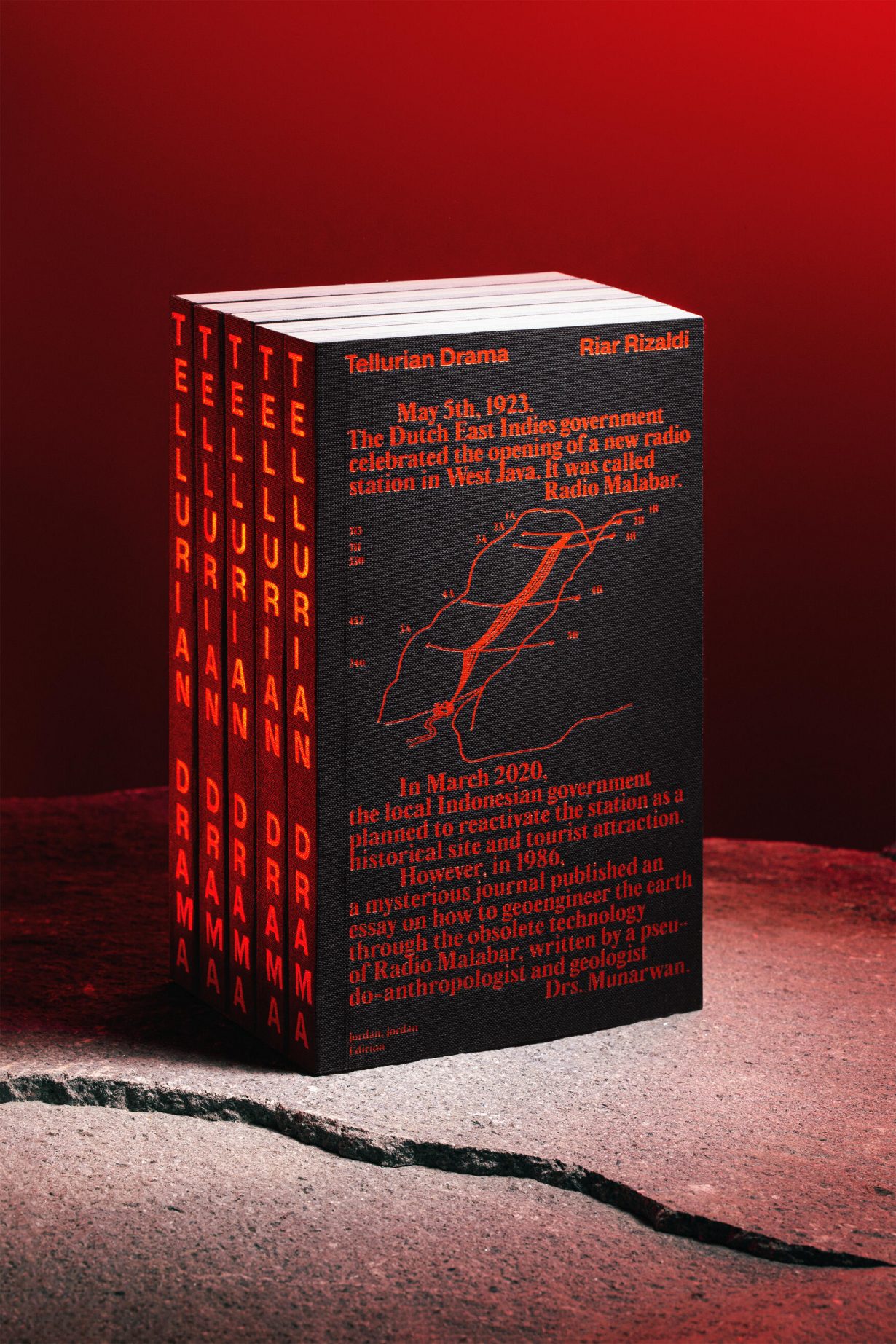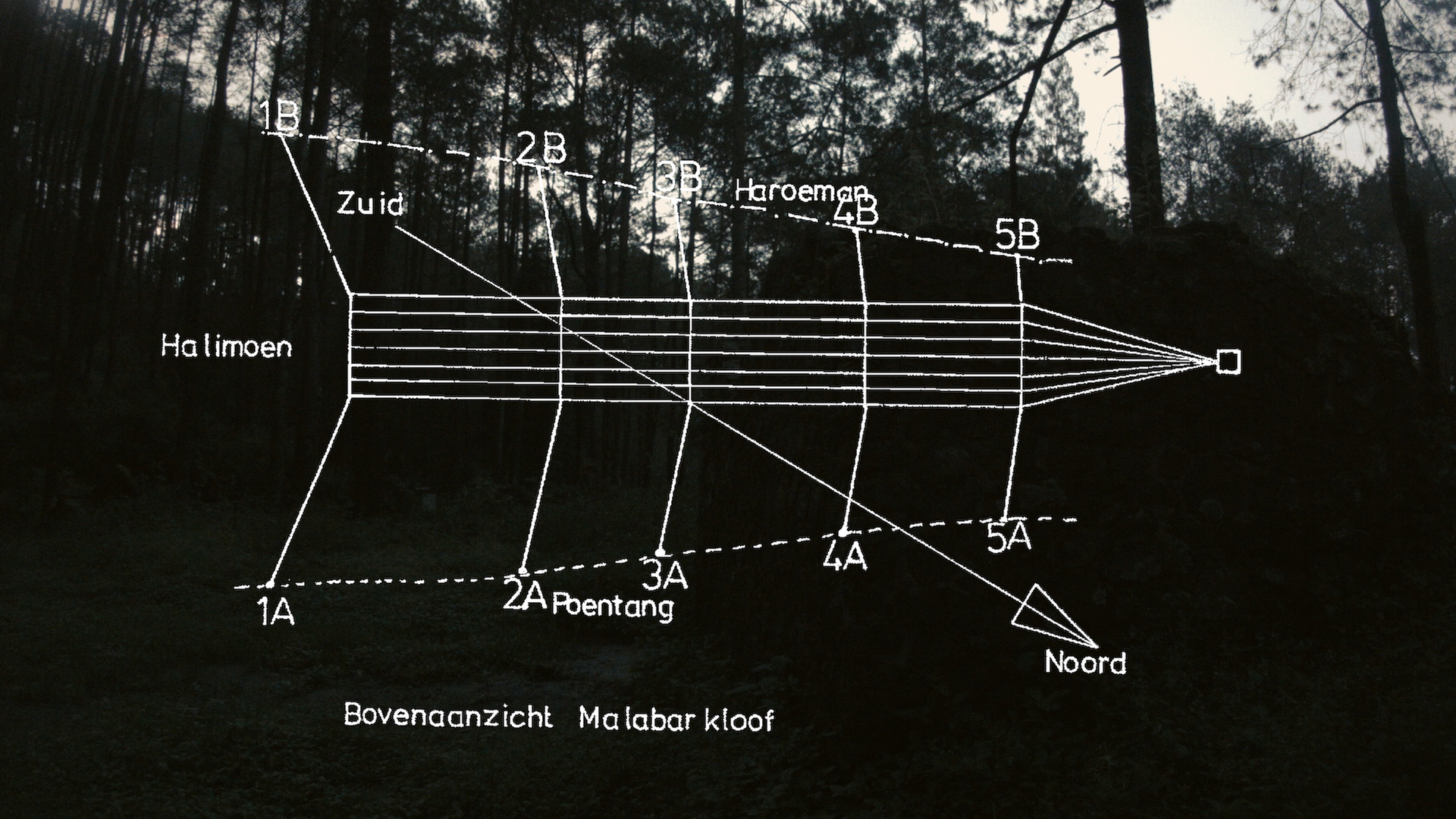A film and book by artist Riar Rizaldi critiques the Indonesian state’s extraction and exploitation of nature
In 1916 the Dutch colonial administration in West Java, Indonesia, started building what was then the world’s most powerful radio transmitter, in the Malabar mountain range, in order to send messages to the Netherlands more than 11,000km away. After the Dutch left Indonesia in 1949, the area was abandoned and the tower fell into ruin. In 2020 the Indonesian government began a plan to reactivate the site as a tourist attraction.
That same year, artist-filmmaker Riar Rizaldi released his short film Tellurian Drama, exploring the stratovolcanic landscape surrounding the tower, as well as the intersection of the tale of the transmitter with histories of colonial rule and with indigenous perspectives that regarded the mountain as the abode of divine or ancestral entities. The film also narrates an obscure text by an Indonesian geologist who studied the area, called Drs Munarwan (Drs stands for Doctorandus, a Dutch academic title). His article, ‘Reconfiguring the Earth: Radio Malabar as a Geo-engineering Imagination’ (1986), sketched out the possibility of using radio waves to intensify the growth of flora – predating ‘geoengineering’, the contemporary field that studies ways to remove large amounts of carbon dioxide from the atmosphere to combat climate change.
The book version of that project is an experimental collage of various formats, with chapters taking the form of essays, fake biographies or fictional stories. One chapter, for example, is a running research log that Rizaldi writes in the first person, detailing his interest in the history of radio in Indonesia and his recent trips to the tower; another is a Q&A conversation with a representative from a state-owned forestry company about the development around the site.

At the heart of the book is the story of Drs Munarwan, whose background is both hyped and obscured. In the introductory text, he has been described as a ‘geologist and geodesic researcher’, ‘maverick scientist’ as well as ‘pseudo-anthropologist, amateur historian, and science-fiction writer’ – whose illustrious name has been somehow scrubbed clean from all official records. Luckily, Rizaldi manages to get excerpts of Munarwan’s writings, which were allegedly sent by an anonymous online contact.
We get to Munarwan’s fiction in the final few chapters. ‘Kronos’, comprising only dialogue, is an extended argument between a ‘radio signal’ sent from the radio tower and an indentured labourer who helped to erect the structure. The signal sees itself as the supreme product of science and rationality, but the slave worker dismisses its importance by saying that he knew the ‘ancestors’ of this little radio signal. ‘We use them to interact with the mountains. It all happened without rationality,’ he says. ‘Our knowledge production has lasted for a long time. Western knowledge only discovered the way to utilize signals, they did not discover signals in a specific way.’
In ‘Tropical Planet’, the National Space Development Agency of Japan receives a message from the year 2677 BCE about a mission to relocate the population of a dying earth to another planet, called Bumi, whose social organisation is similar to prestate communities in the tropics. In the Buminite commoning system, there is no private property and ‘resources and biodiversity is [sic] not just a property but an important part of cultural formation’. The mission considers going there to share Earth’s advanced technology with the Buminites in return for shelter, but ultimately decides not to, because it is ‘another form of colonialism’.
As fiction, these stories are not the most compelling. But they are functional vessels to critique the Indonesian state’s extraction and exploitation of nature, and to suggest alternate futures built on indigenous perspectives. Rizaldi has said in an interview that he is a ‘big fan of conspiracy, fringe-theory, huge-claim-type pseudoscientific books, especially pulp and self-published ones’. His book has the same DNA – but the usual atmosphere of paranoia and excitement is diluted by didacticism.
One wishes it were more playful and less of a soapbox; more speculative fiction, less agenda-heavy theory. That said, Tellurian Drama is a sustained feat of world-building that explores tropical sci-fi visions inspired by indigenous belief systems. The main transmission I received from this ambitious endeavour is that the author is a new voice worth tuning into.
Tellurian Drama by Riar Rizaldi, translated by Fiky Daulay Jordan. Jordan Édition, $20 (softcover)
